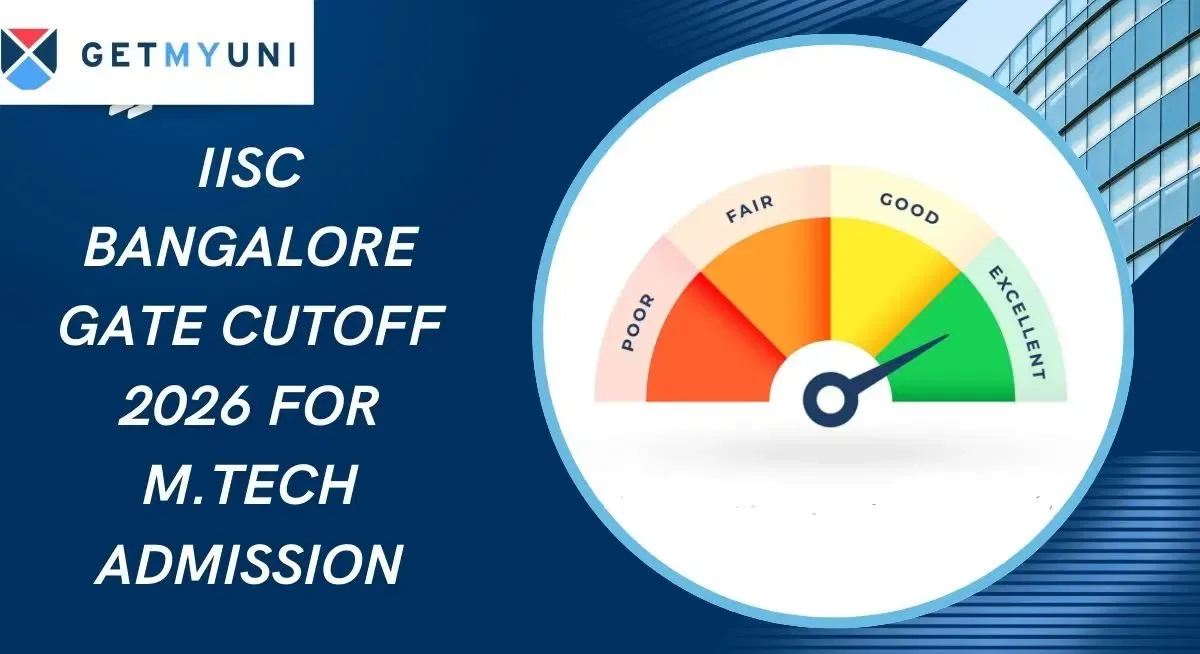Students can build a bright future for themselves by pursuing civil engineering courses after 12th. Such courses are available at graduation, post graduation, certificate, diploma and online levels.
Table of Contents
- Top 11 Civil Engineering Courses after 12th
- Why Pursue Civil Engineering Courses after 12th
- Admission Process for Civil Engineering Courses After 12th
- Entrance Exams for Civil Engineering College Admissions
- Civil Engineering Courses after 12th: Specializations
- Civil Engineering Subjects & Topics
- Top Colleges Offering Civil Engineering Courses After 12th
- Civil Engineering Courses after 12th: Career Scope
- Process to Become a Civil Engineer in India After 12th
Civil engineering courses after 12th focus on teaching about varied building and construction-related prospects. Civil engineering courses are offered at different institutes in India at the degree, diploma, and certificate levels. Students interested in reinventing infrastructure projects and techniques should pursue Civil engineering courses after class 12th to seek a job in their field.
Also Read: Engineering Courses after 12th
Top 11 Civil Engineering Courses after 12th
Civil Engineering courses after 12th concentrate on educating about diverse building and construction-related opportunities. The following table provides a list of courses offered at all academic levels.
| Civil Engineering courses | Degree Type | Average Fees (INR) |
| B.Tech Civil Engineering | Bachelor | 40K to 2 lakhs |
| BE Civil Engineering | Bachelor | 1 lakh |
| Diploma in Civil Engineering | Diploma | 3 to 10 lakhs |
| The Art of Structural Engineering by edX | Certificate | Free |
| Hydraulics by edX | Certificate | 3,604 |
| Water Management by edX | Certificate | 9,930 |
| Introduction to Engineering Mechanics by Coursera | Certificate | Free |
| BIM Fundamentals for Engineers by Coursera | Certificate | Free |
| Basics of Civil Engineering Courses in Construction by Udemy | Certificate | 700 |
| Fundamentals of Structural Analysis by Udemy | Certificate | 700 |
| Fundamentals of Bridge Design – the concept of design and modeling by Udemy | Certificate | NR 950 |
Also Read: GATE Cutoff for Civil Engineering 2024 - Previous Year Cutoffs
B.Tech Civil Engineering
B.Tech Civil Engineering is a four-year undergraduate degree program that covers the study of materials, structural design, construction, technology, and software essential to civil engineering practice. To apply for admission to B.Tech courses, candidates must clear entrance exams such as JEE Main and JEE Advanced. Besides national-level entrances, candidates can attempt state-level engineering entrances. B.Tech Civil Engineering graduates may work in construction and other leading firms. Some are site, consulting civil, water, design, aerospace, shipping, and transport engineers.
Duration - 4 years
Eligibility - Candidates must qualify for the 12th grade with Mathematics, Physics, and Chemistry. In addition, entrance exam scores play a huge role in admission.
Read More: B.Tech Civil Engineering
BE Civil Engineering
The BE Civil Engineering is a four-year undergraduate degree that focuses on constructing, designing, and maintaining infrastructure such as buildings, tunnels, bridges, airports, and more. The skills of project planning, analysis, and design are taught during this course. Project planning, analysis, and design skills are emphasized throughout the curriculum of BE Civil Engineering. The Bachelor of Civil Engineering may work as an engineer, land surveyor, construction supervisor, manager, or designer.
Duration - 4 years
Eligibility - Candidates who wish to apply for BE courses must have scored at least 60% in their 10+2 level. In addition, the entrance exam marks will be taken into consideration. Also, applicants must be between 17 to 23 years of age.
Read More: BE Civil Engineering
Diploma in Civil Engineering
The diploma in Civil Engineering is a three-year program covering various construction and natural environment projects. Regarding project completion, safety, timeliness, and enough funding, the DCE grad plays a key role in numerous fields. The flexibility and broad scope of the Diploma in Civil Engineering provide its graduates with a wide range of employment potential. Graduates often start as Assistant Managers, Assistant Field Inspectors, Construction Site Assistant Supervisors, Faculty Members, Executive Engineers, and Project Engineers.
Duration - 3 years
Eligibility - Candidates must pass the 10th class or equivalent with 50% aggregate marks in science and maths. Direct second-year admission is available to vocational (10+2) and ITI graduates.
Read More: Diploma in Civil Engineering
Why Pursue Civil Engineering Courses after 12th
Civil engineering courses after 12th are among the few that offer students the chance to achieve lucrative careers. There are several reasons why taking civil engineering courses after 12th grade can be a good idea:
- Excellent career prospects - Infrastructure growth in urban and rural areas is driving demand for civil engineers. With the demand for trained civil engineers likely to rise, civil engineering graduates have many job options.
- High and lucrative pay packages - Civil engineering is among the highest-paying areas, with good wages and perks. Over regular wages, civil engineers usually have a stable and secure financial future.
- Innovative, challenging work - Problem-solving skills and inventive thinking are vital for the complex and novel field of civil engineering. Civil engineers frequently face new obstacles and chances to make a positive change.
- Various Specializations - A wide range of specialties is available in civil engineering, including structural, environmental, geological, and transit engineering.
- The Opportunity to Create a Positive Impact - Civil engineers can enhance community life by planning and erecting buildings. They can improve infrastructure, lessen the environmental effect, and make places safer and more available.
Also Read: Mechanical Engineering Courses After 12th
Admission Process for Civil Engineering Courses After 12th
To acquire admission in Civil Engineering Courses after 12th, students must meet all the eligibility criteria, including 12th-grade score and specific entrance exam. The admission guidelines may vary per course or college, but the standard instructions are listed below.
- The first step is to verify the eligibility requirements for the courses and colleges one is interested in.
- To apply, students must register, submit the application form online, and then appear for the specific entrance exam.
- Once candidates qualify for the set cut-off, they must complete the counseling and document verification round.
- And finally, to secure a seat, one must pay the initial tuition fees in any mode.
Also Read: Genetic Engineering Courses after 12th
Entrance Exams for Civil Engineering College Admissions
Admissions are gained through entrance exams like GATE, AMU EEE, ITM NEST, etc. To be successful in the civil engineering field candidates must sharpen their critical thinking and communication skills. Similarly, candidates must be excellent at teamwork, creativity, mitigating problems, and more. Here are entrance exams for admission into civil engineering courses after 12th.
Also Read: B.Tech Entrance Exams 2024 - Dates, Syllabus, Question Papers
Civil Engineering Courses after 12th: Specializations
Civil engineering courses after 12th include various specializations like structural, environmental, geological, and transport engineering. Students may specialize in their areas of interest and proficiency. The following are some of the most prevalent specializations within civil engineering.
- Construction Engineering
- Structural Engineering
- Geotechnical Engineering
- Bridge Engineering
- Urban Engineering
- General Engineering
- Hydraulic Engineering
- Land development
- Materials Engineering
- Environmental Engineering
- Transportation engineering
- Coastal and Ocean Engineering
- Irrigation Engineering
- Water Resources Engineering
- Fire protection engineering
Also Read: Software Engineering Courses after 12th
Civil Engineering Subjects & Topics
In summary, we will note the syllabus for the 4-year B.Tech Civil Engineering program below, for candidates who wish to pursue civil engineering courses after 12th. Usually, prime subjects covered are Mechanics, basic manufacturing process, mathematics, general chemistry, and more.
| Civil Engineering B.Tech Syllabus | |
| 1st Year Syllabus | |
| Mathematics-I | Mechanics |
| Introduction to Environmental Studies | General Chemistry |
| Communication Skills (Basic) | Water Supply Engineering |
| Communication Skills (Advanced) | Geomatics Engineering-I |
| Fluid Mechanics | Ethics and Self Awareness |
| Introduction to Civil Engineering | Numerical Methods and Computer Programming |
| 2nd Year Syllabus | |
| Electrical Sciences | Waste Water Engineering |
| Geomatics Engineering – II | Basic Manufacturing Processes |
| Engineering Hydrology | Engineering Graphics |
| Structural Analysis – I | Structural Analysis-II |
| Channel Hydraulics | Highway and Traffic Engineering |
| HSS Elective Course | Design of Reinforced Concrete Elements |
| 3rd Year Syllabus | |
| Soil Mechanics | Foundation Engineering |
| Design of Structural Systems | Practical Problem |
| Railway Engineering and Airport Planning | Design of Steel Elements |
| Department Elective Course – I | Department Elective Course – II |
| Technical Communication | Minor Specialization Course-I / Department Honors Course – I |
| Open Elective Course/ Management Studies Elective Course | Open Elective Course/ Management Studies Elective Course |
| Educational Tour | - |
| 4th Year | |
| B. Tech. Project | B. Tech. Project (Contd. From Autumn Semester) |
| Department Elective Course-III | Department Elective Course-V |
| Department Elective Course-IV | Department Elective Course-VI |
| Minor Specialization Course-II / Department Honors Course–II | Minor Specialization Course-IV / Department Honors Course – IV |
| Minor Specialization Course-III / Department Honors Course–III | Minor Specialization Course-V / Department Honors Course – V |
| Training Seminar | - |
Also Read: Chemical Engineering Courses after 12th
Top Colleges Offering Civil Engineering Courses After 12th
A full-time 4-year B.Tech/B.E degree civil engineering course will be beneficial for students who wish to study civil engineering courses after 12th and want to build their career as a Civil Engineer. Below is the list of top colleges offering B.Tech in Civil Engineering and MTech in Civil Engineering, along with the average fees.
| Name of College | Fees (INR) |
| IIT Madras | 2.5 lakhs |
| IIT Delhi | 2.2 lakhs |
| IIT Bombay | 2.3 lakhs |
| ICT Mumbai | 90K |
| Jadavpur University | 10K |
| NIT Durgapur | 1.8 lakhs |
| Jamia Millia Islamia | 20K |
| Amity University Kolkata | 1.7 lakhs |
| College of Engineering Anna University | 38K |
| IIT Kanpur | 2.4 lakhs |
| National Institute of Technology Trichy | 1.7 lakhs |
| IIT Kharagpur | 2.5 lakhs |
| Vellore Institute of Technology | 1.7 lakhs |
| National Institute of Technology, Rourkela | 1.78 lakhs |
Also Read: Civil Engineering vs Architecture - Which to Choose?
Civil Engineering Courses after 12th: Career Scope
Civil engineering courses after 12th grade are among the few that allow students to explore lucrative careers. Civil Engineers in India earn between INR 2,000,000 and INR 8,000,000, depending on their role. The following chart lists some common professions along with their average salaries.
| Job Role | Average Salary (INR) |
| Civil Engineers | 5 to 7.2 lakhs |
| Construction Engineers | 5.5 to 8 lakhs |
| Highway Engineers | 4 to 6.8 lakhs |
| Structural Engineers | 3.5 to 7 lakhs |
| Geotechnical Engineers | 6 to 7.5 lakhs |
Eventually, with experience, candidates will get paid INR 7 to 8 lakh per annum, if they pursue civil engineering courses after 12th. Specifically, civil engineering degree courses are open for studies at both undergraduate and postgraduate levels.
Also Read: Civil Engineering vs Mechanical Engineering - Which Has a Better Scope?
Process to Become a Civil Engineer in India After 12th
India follows a very standard procedure for becoming a civil engineer. Early planning is essential for students who want to study civil engineering in India because it will benefit them. Below are simple steps for becoming a civil engineer in India after 12th grade.
Step 1 - Complete the 12th grade: Students must first finish 12th grade in science, with Physics, Chemistry, and Math as compulsory subjects.
Step 2 - Pass the entrance exam: Students seeking entry to the best engineering institutes in India must pass the relevant entrance exams after passing their 12th-grade work.
Step 3 - Enroll in a civil engineering degree program: After clearing the entrance tests, candidates may enroll in a Bachelor of Technology (BTech) or Bachelor of Engineering (B.E.) degree in Civil Engineering.
Step 4 - Gain Valuable Work Exposure: Interning or working for a construction or engineering firm during college is a great way to get hands-on experience in your field.
Step 5 - Get a license as a professional engineer: Civil engineers must have a professional engineering license from the Society of Engineers (India) or other approved bodies. This mainly involves passing a test and accruing some work experience.
Step 6 - Pursue graduate study: Earning a master's or Ph.D. in civil engineering is an excellent way to improve one's job prospects and knowledge base.
Step 7 - Keep Current with Business Changes: Civil engineering is a dynamic field, so it's important to keep up with new building methods, materials, and tools. Conferences, seminars, and ongoing education can help.
Also Read: Who is the Father of Civil Engineering?























POST YOUR COMMENT